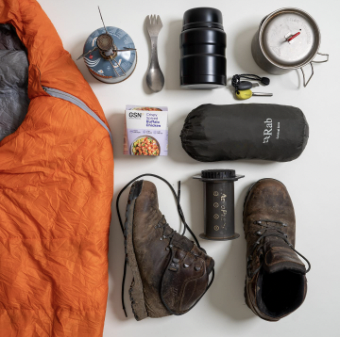

Loading...

Loading...

Forget feeling the effects of your fresher’s hangover and follow our clean living guide for the health-conscious first years that are new to uni life!
With our savvy time and cost-cutting savings, there’s nothing to stop students from learning all the best tricks and tips to eating right, staying active, and adopting an unstoppable healthy lifestyle that will help you boost your university experience both inside and outside of the classroom!
Press nature’s pause button! The benefits of frozen food are endless!
It’s cheaper – It’s much easier & more cost-effective to transport & store frozen meat compared to nature’s ever ticking food clock of fresh! This saving then directly puts change in your pocket and helps you banish your weekly budget constraints!
It preserves taste and reserves nutrients – It’s common knowledge that frozen used to get a bad rap! However, by now we have been told enough times that frozen is the future! Picked, blanched, and frozen within hours of harvest frozen foods are at their peak of ripeness and nutrient-dense!
It’s better for our planet – If like us, you love food but hate waste then take up arms and join us on a journey of delicious, healthy and convenient frozen food in our fight against food waste by choosing frozen food which is naturally less wasteful as it has a much longer shelf life.
Choosing the right foods
Blend it – Smoothies are a simple, quick, cheap, and nutritious way of getting your 5 a day! Take your favorite fruit, vegetables, protein powder, oats, and flavourings and throw them into the blender for an instant on the go thirst-quenching goodness that can boost immunity, productivity and help with gut health!
Quick and easy meals! – Fending for yourself doesn’t have to be difficult! There’s ‘proper food’ for every mood so kick off term time with these incredibly tasty, speedy and simple dishes that will guarantee you will become an eat well academic!
Snack right & Curb your cravings! – Dried fruits, nuts, and seeds make for a fantastic mid-study snack! They have a fantastic nutritional profile and unlike crisps and chocolate are a fantastic source of slow-release energy to help keep you laser-focused throughout the day and provide a great source of essential nutrients such as protein, fibre, potassium and a variety of phytochemicals associated with health promotion.
There’s no big secret … Water in the body is essential for important processes to take place like regulating body temperature, organ health, nutrient delivery and immune function! As a student, it is going to help you feel and perform better by improving concentration and physical activity levels! So what’s the best way to stay hydrated? Just that… ditch the sugary drinks and drink water – it’s cheap and even calorie, sugar and additive-free! Hydration is a simple yet often overlooked health marker so follow these top tips to help you stay watered!
Supporting your studies with a sufficient amount of vitamins and minerals is super important! A long-term lack can negatively impact your health and deficiencies can be common, particularly when it comes to Vitamin D – the sunshine vitamin!
Between March-September we can source most of our vitamin D needs from direct sunlight, where our bodies create it from natural sunlight on our skin. Between October-March however this can be difficult and as a student spending a lot of time in sunlight may be slept upon meaning we do not naturally make enough – this is where we turn our attention to food and dietary supplementation as a source of Vitamin D! Whether it’s studies, parties or snoozing there is plenty that can separate you from the sun and directly affect your Vitamin D levels and lead to deficiency.
Maintaining adequate levels can be effective in helping your health by
Just like a deficiency – too much of any good thing is a bad thing and it’s important to ensure your body has the correct levels of vitamin D (not too much and not too little) to maintain a healthy balanced diet! Therefore, it is a great idea to get your levels tested and if needed supplement your diet and lifestyle with these vitamin D rich sources:
It’s now more difficult than ever to switch off! Our 24/7 connected culture means that sleep frequency and quality has decreased and distractions are common with our natural sleeping patterns!
A good night’s sleep is vitally important for your health. It goes hand in hand with healthy eating and exercise when it comes to maintaining a healthy balanced lifestyle.
Insufficient, poor quality sleep interferes with your appetite hormones and closely ties to insulin resistance negatively affecting your physical and mental performance levels.
Research has found that sleep deprivation directly correlates to poorer diet choices and therefore the consumption of foods that are high in fat, sugar and calories which is why sleep is one of the main risk factors for unwanted weight gain!
So ultimately make sure you don’t snooze on the importance of a sufficient quantity of quality sleep!